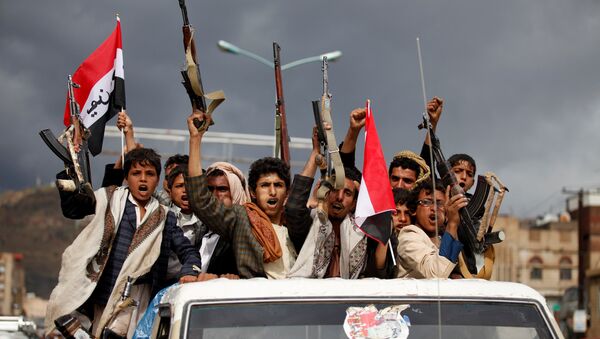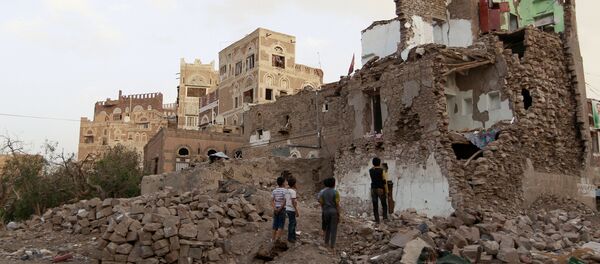UN experts monitoring sanctions on Yemen have written a report to the Security Council which details violations of international humanitarian law committed by all sides to the conflict, Reuters reported on Thursday.
The confidential 105-page document reports that the Saudi-led military coalition has bombed civilian homes, and that Houthi rebels have used civilians as human shields.
Political analyst Catherine Shakdam told Radio Sputnik that while the report criticizes all sides of the conflict, the biggest obstacle to peace is the Saudi-led bombing campaign, which began in March 2015 with the aim of restoring ousted President Abd-Rabbu Mansour Hadi to power.
"The Houthis are a resistance movement with de facto political legitimacy because they are representing the will of the people," said Shakdam, who is Director of Programs for the Shafaqna Institute for Middle Eastern Studies.
The UN report says that the Houthi rebels diverted millions of dollars from Yemen's central bank to support their military campaign. Shakdam replied that the Houthis are justified in taking money to conduct a war against an opponent with much greater means.
"Everything that the UN is reporting right now is hearsay. I'm not saying that they don't know what they're talking about, but what I'm saying is, we need to take this with a big pinch of salt."
"What you have is a resistance movement acting for the central bank to do its job and fund a war effort against an imperial power coming to invade Yemen," she said.
"You cannot possibly sustain such a movement if the people are not somehow in alliance with it," Shakdam said.
"There is a desire to criminalize the resistance movement. The Houthis, the resistance movement, is there to defend the people."
Shakdam alleged that the Saudi-led forces are not allowing aid to the people who need it, and are deciding who receives aid on the basis of religion and political persuasion.
"Those are the kind of things that the UN is standing by (and watching), and the international community is saying nothing."
In February 2015 Shi'ite Houthi rebels forced President Abd-Rabbu Mansour Hadi to resign after seizing control of Sana'a, Yemen's largest city, and the presidential palace. Hadi retracted his resignation after escaping to the main southern city Aden, and later arrived in the Saudi capital Riyadh in March 2015.
A UN report produced in January "documented 119 coalition sorties relating to violations of international humanitarian law."
The UN has also accused the Houthis of blocking supply routes to Taiz, Yemen's second largest city.
In its latest report, the UN says that more than a year of conflict has enabled religious extremists to increase their operations. According to the report, Daesh terrorists have received an influx of cash, and al Qaeda has improved its roadside bombs.




